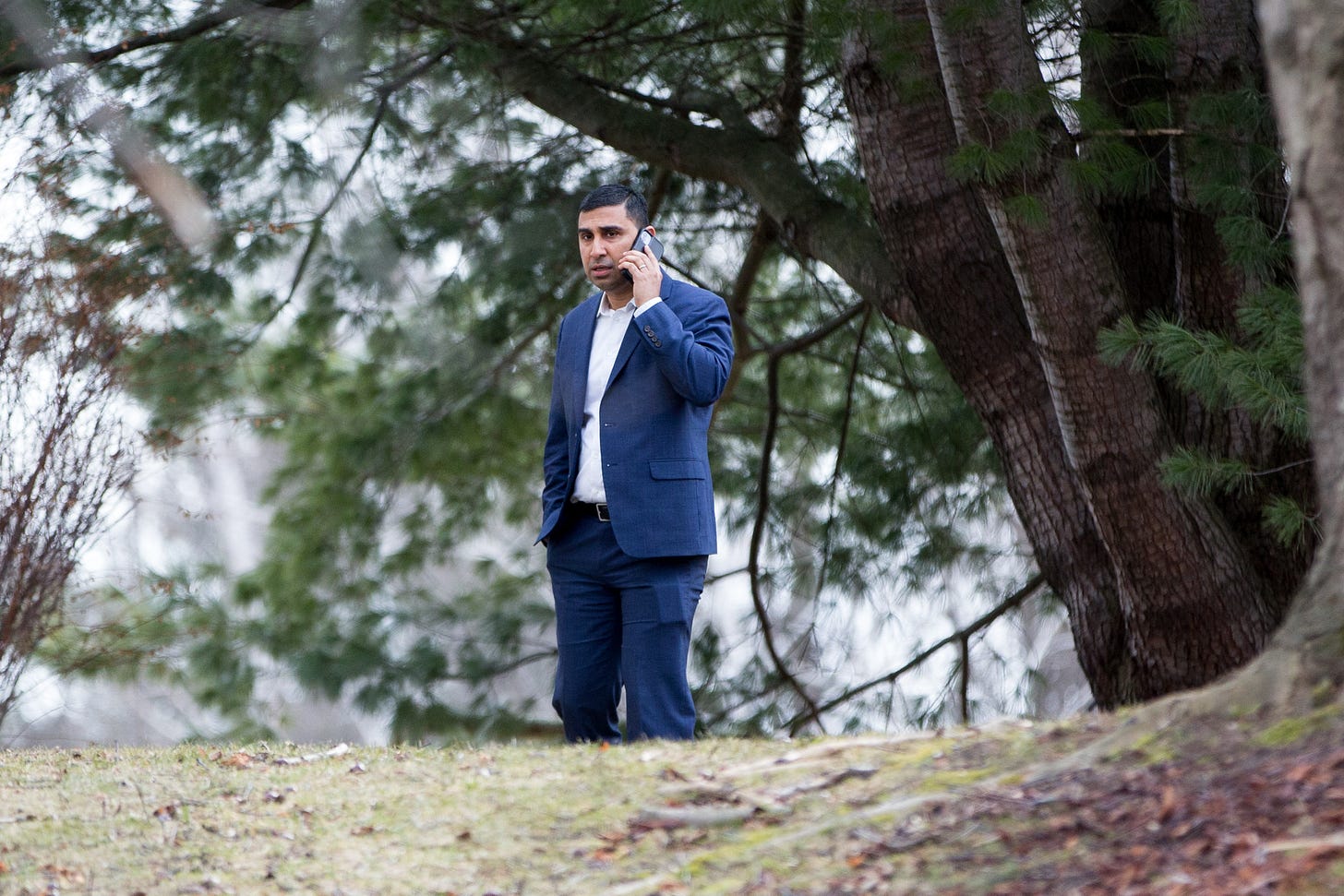Bernie Sanders' former campaign chief wants the left to be patriotic, thick-skinned, and ravenous for converts
Talking with Faiz Shakir about the quietly momentous bond between Sanders and Biden, the need for a progressive media machine, and why politics is the wrong game if you don't want your feelings hurt
A veteran progressive organizer, strategist, and advisor with a Bidenseque flair for coalition-building, Faiz Shakir has worked as a staffer for Nancy Pelosi and Harry Reid, was political director for the ACLU, edited the influential progressive media site ThinkProgress, directs the media organization More Perfect Union, and chaired the 2020 Bernie Sanders presidential campaign. Whatever role he’s served in, he’s remained one of the most interesting thinkers and doers in American politics.
As the Democratic Party searches for a new vision following Kamala Harris’s electoral loss, Bernie Sanders is once again on many minds, including Shakir’s. This past week, he and Ezra Klein discussed Sanders’ lasting impact on the Democrats, and delved into the question as to whether Sanders — or a democratic socialist of similar stripe — could have won against Trump.
Part of that search for meaning and identity — the soul of the party, really — is the race for DNC chair, and with the competition for the position just getting underway, progressives like Ben Wikler are mounting a left challenge to pragmatic centrists such as Rahm Emanuel and process-oriented insiders like Wisconsin’s Ken Martin. It’s even been rumored that Shakir may enter the race.
In that light, we revisit the conversation we had with Shakir last spring. His observations about our political moment — touching on the Bernie-Biden relationship, how his experience growing up in an immigrant family shaped his politics, his vision for a left media that can really educate voters, and how a thick-skinned left that isn’t afraid to have hard conversations with voters of all stripes can thrive — are just as relevant today, when there’s far more at stake.
We hope The Ink will be essential to the thinking and reimagining and reckoning and doing that all lie ahead. We want to thank you for being a part of what we are and what we do, and we promise you that this community is going to find every way possible to be there for you in the times that lie ahead and be there for this country and for what it can be still.
“In order to win, movements have to grow”: a conversation with Faiz Shakir
I want to start by asking you about the moment we’re in. It’s a moment of worker uprising around the country in a way that feels historic. It’s a moment of a historically moderate Democratic president who has acquired some progressive characteristics along the way and racked up a lot of legislative victories that were surprising to a lot of us. It’s a moment of movements on the left having really interesting conversations about cohesion and infighting and the future of the movement. And it’s obviously a moment of a very dangerous right-wing authoritarian movement that is seeing new players rise alongside Trump.
How do you see this moment in time, with all these things going on, in terms of the fights to which you’ve devoted your adult life?
Well, if we start from a political lens, with Joe Biden, the moment is making the man, and now there’s a question of whether the man is going to make the moment.
What I mean by that is essentially two major factors came in to affect Joe Biden. One is a progressive movement that has gained increasing sway within the Democratic Party and increasingly more represents the Democratic voter base. Joe Biden has essentially heeded it, built a coalition that comprises progressives instead of trying to stiff-arm them. The second thing that we know well is that Covid affected the economy and the psyche of Americans in a way that they wanted more government action, and the solutions that they were seeking were progressive in nature.
So those two things collide with Joe Biden entering office. To his credit, he says, I see you. I hear you. I feel you. And we’re going to start operating in a way in which government takes a much more aggressive role in a lot of different ways that progressives have been calling for — whether it’s in the healthcare markets or taking on large antitrust monopolies, heeding pro-worker movements, and also showing that, on Social Security, Medicare, and key safety net programs, I’m going to have your back.
Now there’s the man-making-the-moment question, which is remaking the Democratic Party to be more deeply aligned with working-class individuals. That’s an ongoing work in progress. That’s a struggle to win back lost trust in people who felt like either the Democratic Party didn’t align with the things that they cared about in their own lives, or that Democrats couldn’t make government work for them. So if you started to feel cynical about government, you started to feel cynical about the Democratic Party. We’re working on retooling that. I think how we flex for working-class people and show them that we’re on their side — that ends up becoming one of the big challenges to fight right-wing fascism and authoritarianism.




